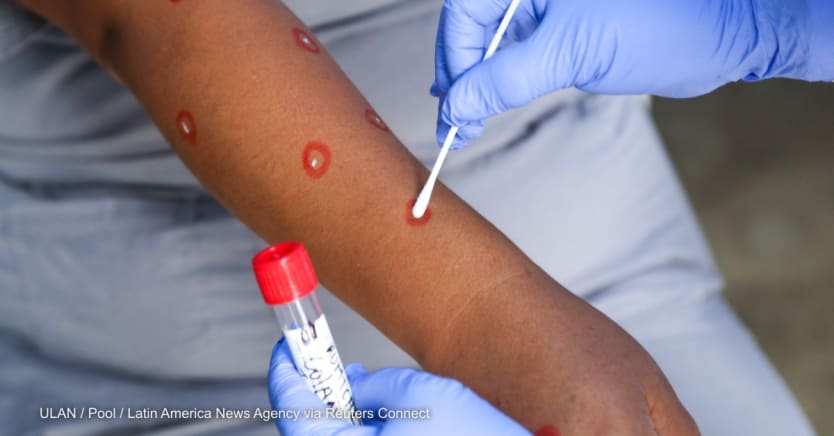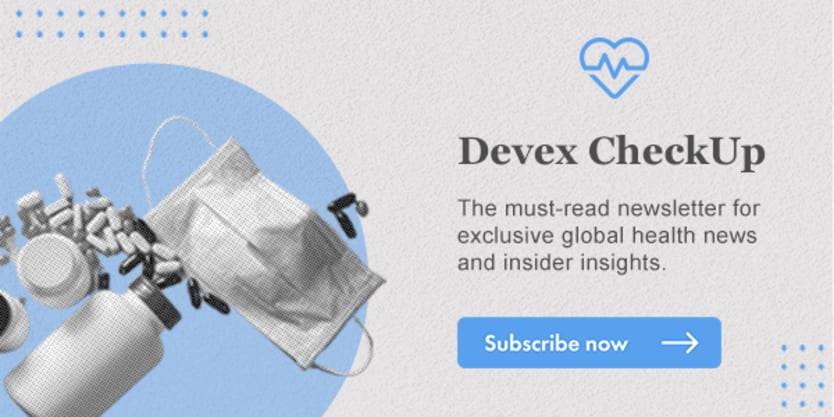
African countries have recorded seven of the 12 deaths in the monkeypox outbreak so far, but have watched as high-income nations divide up the available supplies of vaccines and treatments. The current outbreak erupted in May, with cases emerging in Europe, North America, parts of Africa, and some western Pacific nations.
It echoes the disparities in the initial distribution of COVID-19 vaccines, experts say, but also a decadeslong disregard of monkeypox in Africa.
“We’re a bit disappointed that it took the occurrence of cases outside of the continent for people to pay attention and then to sit up and declare an emergency, when no such effort was done for countries that have had monkeypox in the background for years,” said Ifedayo Adetifa, the director general of the Nigeria Centre for Disease Control.
The disease has been circulating in corners of West and Central Africa for decades, where it received little notice from global health officials or pharmaceutical companies. That continued even after hundreds of people were infected in a 2017 outbreak in Nigeria.
The rapid spread since May convinced World Health Organization Director-General Tedros Adhanom to declare the outbreak a public health emergency last month and to implore high-income countries to share their stockpiles of vaccines and treatments.
It has not been enough to get the resources health officials on the continent need to grapple with the virus there, experts said.
“Instead of it being a [public health emergency of international concern] that encompasses a response that addressed monkeypox everywhere, it is an emergency declaration for North America and Europe,” said Boghuma Titanji, an infectious disease expert at Emory University. “Once they contain this outbreak in Europe and North America, then will they forget about West and Central Africa again and return to the status quo? That is what I fear will happen.”
Lessons from Nigeria
There might not be a public health emergency if more attention was paid to the 2017 outbreak in Nigeria.
Health care workers there ultimately reported 228 confirmed and suspected cases across 24 of the country’s 36 states, but experts agree that count is low due to a combination of spotty health care coverage and a lack of diagnostic resources.
The outbreak revealed that monkeypox could be transmitted through sexual activity, upending the idea that it could only be passed on from animals to humans, and that the entire world was vulnerable. Cases linked to that outbreak were reported in Israel. It is also believed to be the source of the current emergency. Researchers suspect the virus had been circulating before the explosion in cases this year.
“Nigeria is the missed signal that once we start seeing transmission, we could have a problem,” said Ambrose Talisuna, the incident manager for WHO’s monkeypox response in Africa. “It was a failure on all of us not to have seen that and developed tools.”
Instead, the global community was caught flat-footed as monkeypox cases began to appear in North America, Europe, and countries across Africa. WHO counts more than 36,400 cases around the world. The Africa Centres for Disease Control and Prevention has tallied 380 confirmed and more than 2,500 suspected cases this year in 11 African countries.
In the global north, transmission is primarily occurring among men who have sex with men, or MSM. Many governments have now mounted halting efforts to provide the smallpox vaccine, MVA, which is also effective against monkeypox, to at-risk communities and to encourage them to temporarily avoid activities that might boost the virus’ spread.
African public health officials often lack the capacity or supplies to undertake similar efforts. In places where they do, such as Nigeria, Adetifa said it is stretching thin their capacity to respond to other diseases, including COVID-19 and cholera. The WHO declaration has brought increased domestic resources, he said, and the promise of additional international money, but there are still huge gaps.
“We don’t have vaccines, we don’t have therapeutics, we’re lagging behind with several unknowns about monkeypox,” Dr. Dimie Ogoina, a Nigerian infectious disease expert who identified the first case in the 2017 outbreak, told Devex.
Only one company — Bavarian Nordic — has the patent to produce the monkeypox vaccine and its output has ground to a halt because a key facility was closed for expansion when the outbreak began. That left countries competing for 16.4 million doses that currently exist, with no new supplies expected to be available until 2023. The United States has already claimed the bulk of the doses that are available for distribution and WHO officials have warned the remaining supplies could be divided among the highest bidders.
At the same time, in many African countries, there are not enough tests and health workers trained to administer them to make rapid diagnoses, which would allow officials to understand the scale of the outbreak and how it is being transmitted. That includes investigating whether it is being primarily passed through networks of MSM, or through other channels.
“Nigeria is the missed signal that once we start seeing transmission, we could have a problem.”
— Ambrose Talisuna, incident manager, WHO’s monkeypox response in AfricaAs a result, health officials cannot launch campaigns to raise awareness of the virus, quickly warn contacts who may be infected, or prepare for a potential vaccine rollout that targets the people at highest risk of infection. And if the virus is circulating in MSM communities, policymakers cannot begin the work of addressing stigma against — or criminalization of — these groups, which may cause potential patients to shy away from health services.
Some efforts are underway. Africa CDC and the WHO office in Africa are both distributing diagnostic kits. Africa CDC is conducting training with NCDC on how to diagnose the virus, and agencies are helping to support genomic sequencing where it is available.
Genomic sequencing in Africa is particularly crucial because the continent is struggling with two different clades or variants: One that officials suspect was primarily affecting the Congo Basin, known as clade I, and another in West African countries, known as clade II. Without extensive genomic sequencing, they cannot map the extent of the two existing clades or determine whether either has evolved to potentially become more infectious.
With global attention focused on clade II, which appears to be responsible for the outbreak in Europe and North America, Ogoina warned that researchers risk neglecting clade I. That includes investigating how effective the vaccine is against that strain.
There is also no research into the impact of monkeypox on people living with HIV — a serious gap in knowledge in communities in Africa where HIV rates are high, Ogoina said.
If there is an increased risk of a serious infection, it will only trigger additional frustration over the lack of access to antivirals, tecovirimat, or Tpoxx — a drug which is also used to treat smallpox — that are being used to treat severe cases in North America and Europe.
Infectious disease expert Titanji is looking for WHO or another international body to introduce a structured system to facilitate sharing of vaccines and treatments and to ensure some level of accountability.
“It’s been a month since the [public health emergency of international concern] was declared,” she said. “I’d like to see something beyond just statements and calls for solidarity.”

Search for articles
Most Read
- 1
- 2
- 3
- 4
- 5








